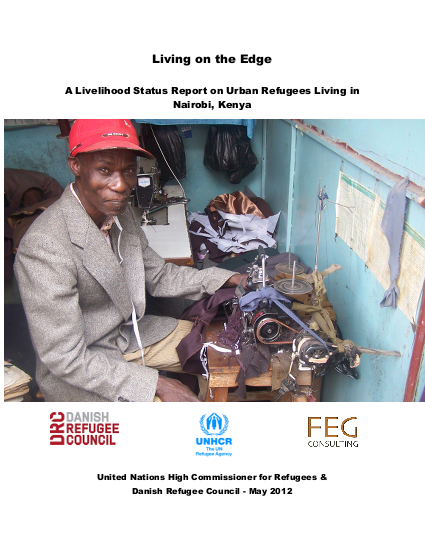
Asylum seekers and refugees in Kayole, Eastleigh and Kitengela have made great strides integrating into the social and economic life of Nairobi. The livelihoods baseline illustrates that the socio-economic profile of the urban asylum seeker or refugee is not that of desperation and dependence. Rather it is one of incredible resilience in the face of significant odds. The majority are engaged in economic activities in the informal sector, and have made modest gains with limited support from the Government of Kenya or the humanitarian community. A minority are successful entrepreneurs providing much social and economic benefit to the communities they reside in. This minority provide a picture of what asylum seekers and refugees can achieve if they are explicitly conferred the right to work and reside in Nairobi, and with that, access to the necessary services and opportunities. The majority of the urban poor, including asylum seekers and refugees, find livelihood opportunities in the highly competitive informal sector. Poor regulation, poor physical infrastructure and limited access to institutionalised business support services limit the viability of the informal sector. Those without specialised skills or capital to start a business earn daily wages as casual labourers or as low-level employees. For asylum seekers and refugees the odds are worse, encumbered by a lengthy asylum seeking process, limited engagement with local administrative authorities which deprives them of critical protection and support, and a business community hesitant to engage them as a potential market. Without ownership of fixed assets those seeking to start or grow a business fail to meet the collateral requirements for business loans.